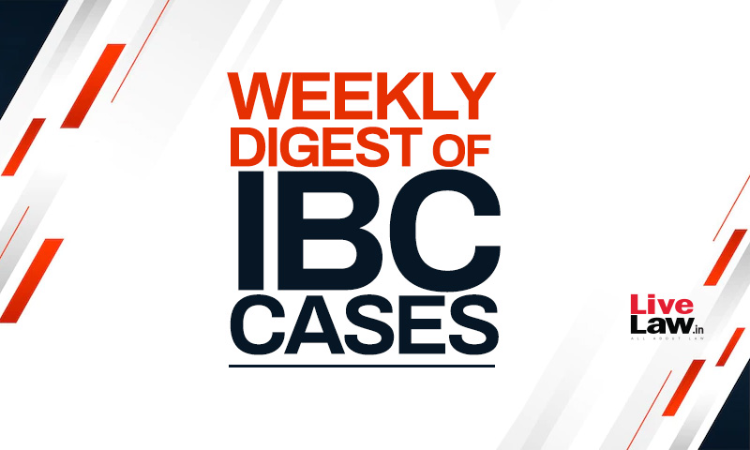Next Story
16 Nov 2023 10:41 AM IST
SUPREME COURTSupreme Court Upholds Constitutionality Of IBC Provisions Relating To Personal Guarantors; Says Adjudicatory Role Can't Be Read Into Sec 97Case Title: Surendra B. Jiwrajika and Anr. vs. Omkara Assets Reconstruction Private Limited Case No.: SLP(C) No. 016464/2021 The Supreme Court Bench comprising Chief Justice DY Chandrachud, Justices JB Pardiwala and Justice Manoj Misra, has...

